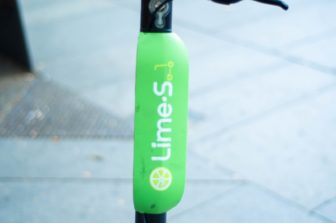
Dockless electric scooters, the two-wheeled bundles of convenience and chaos, are set to return this spring but not without preparation from the Lansing City Council.
Lansing’s City Council approved an ordinance that regulates dockless electric scooters and set a date for a public hearing regarding the Red Cedar Project’s Brownfield Plan.
The ordinance will require scooter-sharing companies like Bird and Lime to pay licensing fees and presents regulations for how the scooters must be parked and operated.
The ordinance is intended to make the scooters that began to take over Lansing’s streets last fall safer for pedestrians and riders.
“We have to do something. We have seen issues with these scooters all across the country,” said Councilman Adam Hussain. He cited an incident where a student in Detroit missed three days of school after getting into an accident while riding one of the scooters.
Companies will be required to obtain a license from the city before releasing their scooters. To get the license, they must agree to regulations that include curbing the speed of the scooters at 15 mph and working with the city to inform riders of proper scooter etiquette.
This license will cost $2,500 and must be renewed annually.
Companies will also be required to develop a cold-weather operating plan where they must decide which weather conditions make the scooters unsafe to ride.
Council President Carol Wood has concerns that companies will not comply with the ordinance, based on their inability to do so with temporary agreements regarding weather in the past.
Councilwoman Jody Washington also has concerns with compliance. “I can’t tell you how many scooters I have taken out of the middle of the sidewalk,” she says, “people are being really irresponsible when they’re riding them. I don’t see how we are going to enforce this.”
However, Hussain said he is comfortable moving forward on the ordinance because of the city’s ability to revoke a company’s license if it fails to meet regulations.
The ordinance passed unanimously.
The council also set the public hearing for the Red Cedar Project’s Brownfield Plan for March 25.

This project has been developing for six years and will revamp the Michigan Avenue golf course that became obsolete in 2007.
The budget to complete the project is $250 million. Of this, $54.1 million is needed to get the project started.
It will create 6 buildings that include student housing, two hotels, a senior-living facility, restaurants, retail space, and a public park.
Christopher Stralkowski, executive project manager, said the project is an “opportunity for growth,” saying it will attract employers and increase jobs for Lansing residents.
During the team’s presentation, Councilman Brian T. Jackson questioned the fate of the project because of the possibility of an increase in floodwaters.
However, Jason Hockstok, senior vice president of the project, said he believes the project is worth the risk.
Bob Trezise, president and CEO of the Lansing Economic Area Partnership, credits the perseverance of team members as they developed a plan that does not require funding from Lansing taxpayers. Instead, the project will be completely supported by public financing.
If the City Council approves the Brownfield Plan, it will move on to the Michigan Economic Development Corporation and Department of Environmental Quality for approval.
Phase 1 of the project could begin in September.